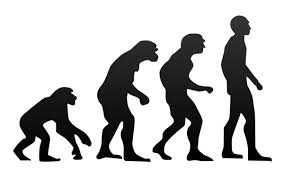
Breaking News
 Make Your Own Seasoned Rice Mixes!
Make Your Own Seasoned Rice Mixes!
 NASA Reveal Highest Resolution Visible Light and Infrared 3I/Atlas Images
NASA Reveal Highest Resolution Visible Light and Infrared 3I/Atlas Images
 We're evolving too slowly for the world we've built, according to science
We're evolving too slowly for the world we've built, according to science
 There Are No Easy Fights In The Struggle Against The Empire
There Are No Easy Fights In The Struggle Against The Empire
Top Tech News
 New Gel Regrows Dental Enamel–Which Humans Cannot Do–and Could Revolutionize Tooth Care
New Gel Regrows Dental Enamel–Which Humans Cannot Do–and Could Revolutionize Tooth Care
 Researchers want to drop lab grown brains into video games
Researchers want to drop lab grown brains into video games
 Scientists achieve breakthrough in Quantum satellite uplink
Scientists achieve breakthrough in Quantum satellite uplink
 Blue Origin New Glenn 2 Next Launch and How Many Launches in 2026 and 2027
Blue Origin New Glenn 2 Next Launch and How Many Launches in 2026 and 2027
 China's thorium reactor aims to fuse power and parity
China's thorium reactor aims to fuse power and parity
 Ancient way to create penicillin, a medicine from ancient era
Ancient way to create penicillin, a medicine from ancient era
 Goodbye, Cavities? Scientists Just Found a Way to Regrow Tooth Enamel
Goodbye, Cavities? Scientists Just Found a Way to Regrow Tooth Enamel
 Scientists Say They've Figured Out How to Transcribe Your Thoughts From an MRI Scan
Scientists Say They've Figured Out How to Transcribe Your Thoughts From an MRI Scan
 Calling Dr. Grok. Can AI Do Better than Your Primary Physician?
Calling Dr. Grok. Can AI Do Better than Your Primary Physician?
We're evolving too slowly for the world we've built, according to science

Many of the chronic stress-related health issues we face today aren't personal failings or modern inconveniences – they're the predictable result of forcing Stone Age physiology into a world it was never built for.
A fascinating new study from University of Zurich researchers has investigated whether the rapid and extensive environmental shifts of the current Anthropocene have compromised the fitness of Homo sapiens. In less-evolutionary speak: if the world most of us experience daily is having a profound impact on mental and physical health as a species.
Synthesizing data concerning industrialization and urbanization and health, the researchers argue that there are many signs that humans haven't had time to adapt to the rapid changes in the world over the last century. They cite declining global fertility rates, rising chronic inflammatory conditions and other chronic health trends as signs that we've been struggling on Earth since the Industrial Revolution.
One example they give is our rapid change from hunter-gatherer societies, where humans encountered occasional stressors in the wild, to urban environments where daily challenges have us in a sustained high-alert mode. City noise, air and light pollution, microplastics, pesticides, artificial light, processed foods, sedentary lifestyles and sensory overload are all relatively new experiences for H. sapiens.
"In our ancestral environments, we were well adapted to deal with acute stress to evade or confront predators," explained Colin Shaw, head of the Human Evolutionary EcoPhysiology (HEEP) research group along with Daniel Longman at the University of Zurich. "The lion would come around occasionally, and you had to be ready to defend yourself – or run. The key is that the lion goes away again."
Now, we get little reprieve from an onslaught of stressors – traffic, work, social media, constant sensory stimulation – that trigger those same ancestral biological responses, except without an "off" switch.
"Our body reacts as though all these stressors were lions," said Longman. "Whether it's a difficult discussion with your boss or traffic noise, your stress response system is still the same as if you were facing lion after lion. As a result, you have a very powerful response from your nervous system, but no recovery."

 Unbanked In A Connected World
Unbanked In A Connected World

